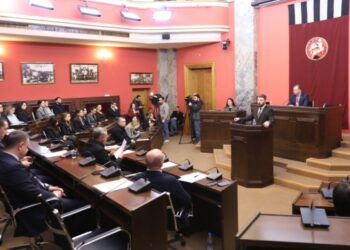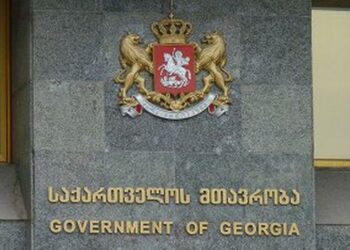The news industry in Sakartvelo is flagrantly predisposed, behaving that way without any pang of conscience. When I say ‘news industry,’ I mean a huge bunch of people, engaged in the multifaceted and complicated process of receiving, processing and feeding information to the population of the country. The tendency is so strong that most of our journalists take it for granted that they should openly demonstrate their political preferences, corporate partiality and appetite for pecuniary advantage. More often than not, in this political culture, partisan prejudices preponderate objective reporting and a plain, disinterested description of facts. Hence, not many Georgian newscasters and columnists would embrace the famous British adage that comments are free, but facts are sacred.
Bias is usually exposed in covering events, seen in radically different colors and hues, depending on which political force this or that medium is associated with. The stories to be brought to the attention of their readers, listeners and viewers, are not selected by means of gravity of content, but based on the attitudinal whims of the individual journalists, in conspiracy with their patrons and engagers. No story will be covered unless the content is in unison with the editorial policy and ideology of a particular medium of mass communication. One may call this kind of choice a form of “freedom of speech,” – ‘I will say and do whatever I think is right’. OK, granted, but how to handle the truth? Has the truth lost its classic traditional value? Do we need the truth at all in order to live a good life?
The informational bias is manifested in many different ways, in sensationalism, political affiliation, spin, angle and wording. Some people might argue that bias is not a big deal because we are all individual human beings, who are entitled to see things the way we see them. because all of us have our preferences that have to be respected. On the other hand, personal and political predilection in presenting the news might be evaluated as something harmful and destructive in the sensitive process of treating the news consumers fairly and loyally.
When journalists are biased, they must know they are damaging the process of national development, having a pernicious effect on a younger generation’s vision of the future. It is so easy to mislead young men and women! It would not be an exaggeration to say that the contemporary Georgian politics and its mirror, the media, are full of distortions and biases, to which our public has already gotten used to.
Moreover, it is hardly imaginable that the people who are handling information in general are angelically pure and unbiased, but it is also a problem to make a crystal-clear difference between the biased and the unbiased. There will always be contradictory arguments provided a certain medium is qualified either biased or unbiased, because calling them biased might be considered unfair, and describing them as unbiased may be an overstatement, so even attempting this kind of assessment is doomed to be attacked by media watchers.
Due to the extant bias in news operations in Georgia, our informational sources are becoming less and less reliable: people read newspapers and think there must be something totally different behind the actual words they are reading; they listen to the radio and doubt if what they hear is true; viewers watch several TV channels at their disposal and are surprised at the uncanny difference between them in the ways they interpret the same facts; and those who spend their time browsing the Internet take the numerous blogs and comments with misgivings and raised eyebrows. So, why waste time on the information that we a-priori render as garbled and aimed at manipulating our brains (which are strained and overloaded anyway)? The conventional wisdom would have it that the manipulated morale and intellect may very well be the prerequisite for our nervous breakdown if the manipulation is overdone. Meanwhile, let us be without doubt that we are strongly and regularly manipulated by our media, which has enough power to keep both our wits and spirits caught in their strong and sharp tentacles.
Op-Ed by Nugzar B. Ruhadze














